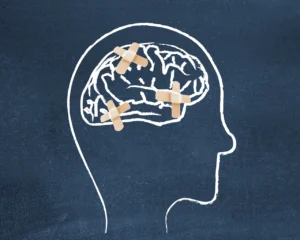What Is Psychoanalysis?
The official psychoanalysis definition describes it as a type of psychological therapy that investigates the interaction of conscious and unconscious elements in the mind to bring repressed feelings and thoughts into the conscious mind.
While that is the working definition of the term, you may still be left with the question, “What does psychoanalysis mean?” In layman’s terms, it is a way that therapists seek to better understand human behavior.
It is based on Sigmund Freud’s teachings, and the belief is that we all have things that we may not be aware of that are contributing to our psychological states of being, including past traumas, internal conflicts, and unexpressed emotions.
Therapy.com is user supported. We receive a commission fee from purchases made through BetterHelp links.
Learn More
A Brief History of Psychoanalysis
To better understand psychoanalysis meaning and concepts, here is a look at the origins of the theory and how it evolved.
Sigmund Freud was a doctor in the 1880s who became interested in hypnosis and began using it on his patients. He then began trying new practices in his work, such as encouraging the patient to talk about whatever came to mind, which he called “free association.”
He would then take this information and analyze it to better understand the patient’s diagnosis and treat their symptoms. This was the birth of the psychoanalysis theory.
The psychoanalytic theory was based on the idea that our unconscious minds act as a sort of barrier or guard and only allow unthreatening thoughts and feelings into the conscious mind. Therefore, Freud developed theories around childhood traumas, dream interpretations, repressed sexual feelings, and unfulfilled wishes.
In 1902, a group of physicians and psychiatrists formed the Wednesday Psychological Society. This later became the Vienna Psychoanalytic Society and included important members such as Carl Jung and Alfred Adler.
Modern psychoanalysis now includes many people who used Freud’s theories as a foundation but formed their own theories of how to analyze a person’s psychological makeup and treat mental health conditions. Jung, Adler, and Jaques Lacan all went on to be influential figures in modern psychoanalysis.
What Causes Anxiety? Understanding the Origins
There is no known cause of anxiety. However, some factors may contribute to your experiencing it at some point in your life.
These risk factors include:
- Family history of anxiety
- Brain biology and the way your neurochemicals function
- High-stress environment
- Certain personality traits such as being shy or withdrawn
- Traumatic events
If you have a family history of anxiety, this could point to some genetic factors, which means your brain chemistry causes the symptoms of anxiety. Being exposed to certain patterns of behavior and thinking from a family member with anxiety can also lead to learned patterns for yourself.
For example, if you grew up with a parent who talked about their persistent worries and fears and avoided social situations, you may find yourself falling into similar patterns as well.
A difficult reality about anxiety disorders is that the cycle often perpetuates itself. You experience unpleasant symptoms and excessive worry about a situation, and you hope to never feel this way again. This leads to anxiety about feeling anxiety again! Treatment can help interrupt this anxiety cycle.
Therapy.com is user supported. We receive a commission fee from purchases made through BetterHelp links.
Learn More
FAQs
The main goal of psychoanalysis theory is to move any thoughts and feelings that are repressed in the unconscious to the surface so that you are conscious of them and can then begin to change unwanted behaviors.
While the therapeutic process is different from person to person, this type of therapy is often a long-term commitment. Typically, you can expect the therapy journey to last for several years, and you may attend two sessions a week at some points in the process.
Yes, there are some major differences between Lacan and Freud’s theories, even though both are focused on the unconscious mind. Lacan emphasizes the role of language and culture and how that shapes our unconscious, where Freud believed that biology and instincts drive our unconscious.
Yes, this type of therapy can help you identify underlying issues that may be contributing to anxiety and depression. Psychoanalysis can also help you become more self-aware and change patterns of thinking and behaving that lead to worse symptoms.
While both approaches can help you with most mental health issues, there are some distinct differences. Behavioral therapy is short-term, goal-oriented, and more focused on behaviors in the present, while psychoanalysis is long-term and more focused on your past and uncovering things that might be repressed.
How Psychoanalysis Therapy Works
Psychoanalysis and psychoanalytic therapy sessions may differ depending on your therapist’s specific techniques. Here are some of the typical things you can expect in a session:
- The duration will usually be about an hour.
- You may be asked to lie down on a couch while talking so as not to be distracted by the therapist.
- The frequency of sessions may be once or twice a week for several years.
- Your therapist may use techniques such as free association and dream interpretation.
The therapist-client dynamic in a psychoanalytic setting is unique from other forms of therapy. Psychoanalytic therapists use something called transference as part of their therapeutic intervention.

Transference occurs when a patient directs certain feelings about someone else or something else from their past onto the therapist. In psychoanalysis, this is an important part of the therapeutic process. The belief is that transference can only occur if the therapist remains a “blank slate” to the client.
So, in this dynamic, the therapist will not divulge any personal information about themselves to their client.
Therapy.com is user supported. We receive a commission fee from purchases made through BetterHelp links.
Learn More
How Is Behavior Therapy Different Than Psychoanalysis?
Behavior therapy and psychoanalysis have very distinct differences. Some of the main components of behavioral therapies include:
- Focus on patterns of behavior
- Concern with the here and now, not the past
- Emphasis on symptoms and how to lessen or get rid of them
- Short-term therapy process
Behavior therapy utilizes techniques that focus on changing behaviors, such as reinforcement, punishment shaping, and modeling.
Some of the main components of psychoanalysis include:
- Focus on unconscious thoughts and feelings
- Concern with the past as well as the present
- Emphasis on root causes behind symptoms
- Long-term therapy process
Psychoanalytic therapy utilizes techniques that focus on bringing the unconscious to the conscious, such as free association, dream interpretation, and transference.
Benefits of Psychoanalysis
Some studies suggest that psychoanalysis can be just as effective, and maybe more so, than other forms of therapy, such as cognitive behavioral therapy (CBT). One study found that the long-term effect of psychoanalysis was better than that of CBT.
Some of the benefits of psychoanalysis include:
- Increased self-awareness
- Improvement in long-standing emotional issues
- Help in getting past unresolved trauma
- Clarity around identity issues
- Improvement in interpersonal relationships
If you think psychoanalysis might be beneficial for you, use the Therapy.com search tool to locate a qualified professional in your area.
Therapy.com is user supported. We receive a commission fee from purchases made through BetterHelp links.
Learn More




